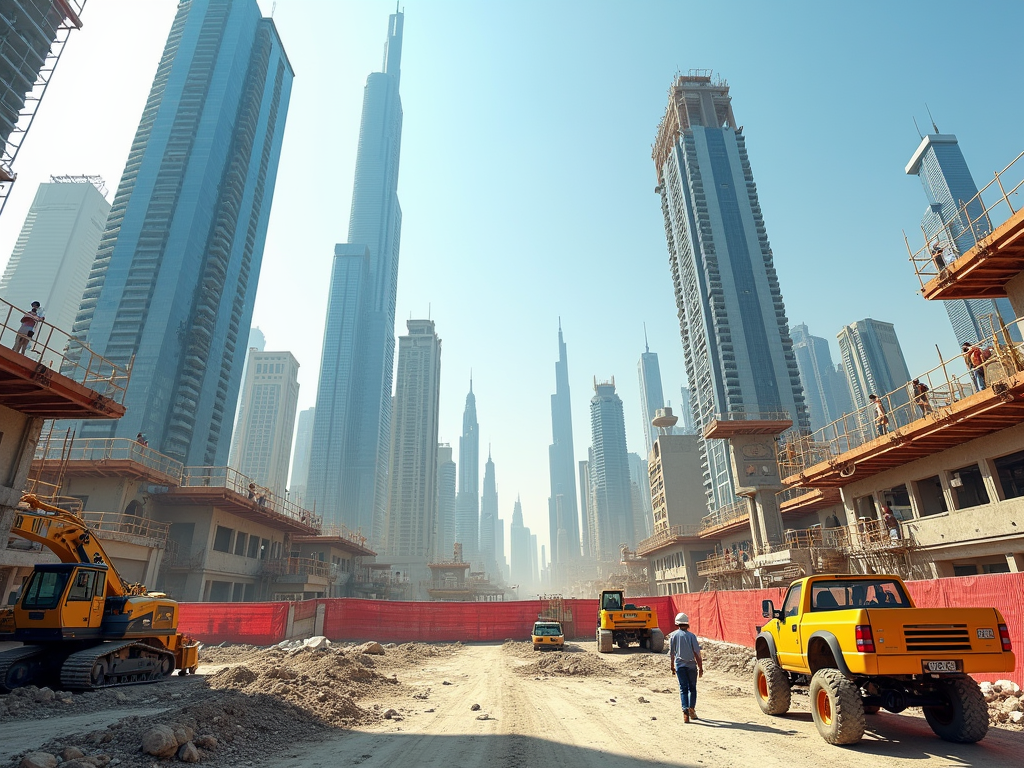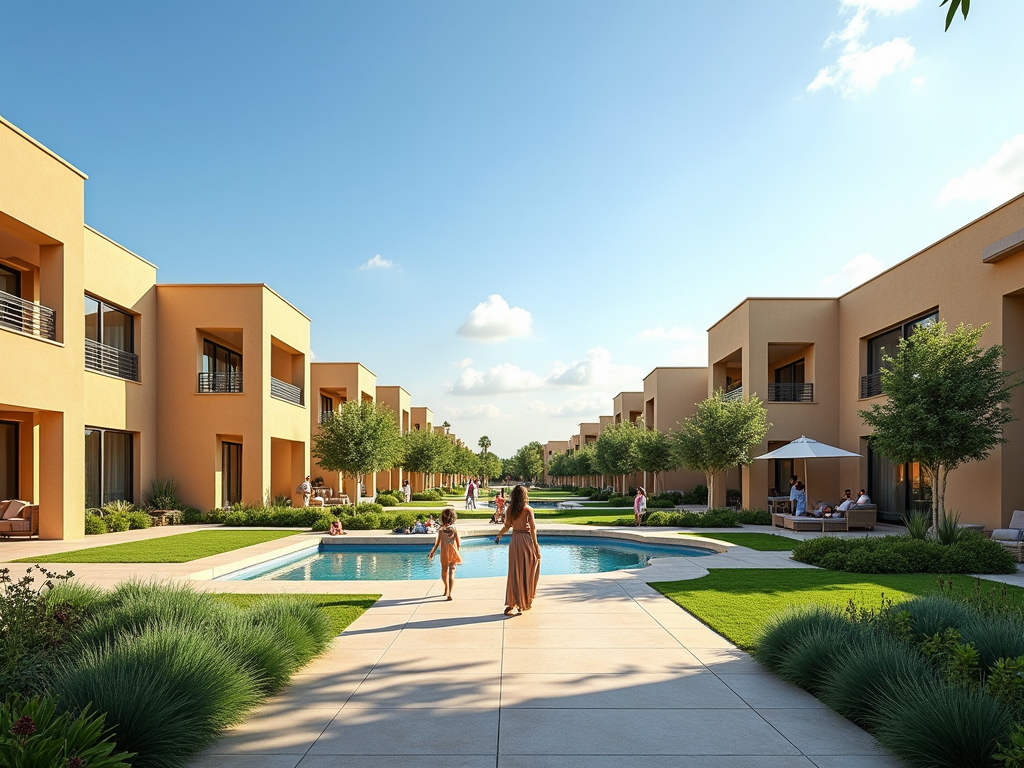Dubai’s real estate market has demonstrated remarkable resilience and adaptability in response to evolving consumer demands and global trends. Over the past few years, several shifts have been observed, driven primarily by changing lifestyles, economic fluctuations, and technological advancements. Developers and stakeholders in the real estate sector have embraced these changes, optimizing their offerings to meet buyer expectations. Consequently, the market has witnessed innovative projects and a notable diversification of housing options. This article delves into the various ways Dubai’s real estate market has evolved and adapted, ensuring its continued appeal to both local and international buyers.
Shifts in Buyer Preferences

One of the most significant factors affecting Dubai’s real estate sector is the shift in buyer preferences. As lifestyles evolve, so do the needs and desires of property seekers. The pandemic highlighted the importance of space, both inside and outside the home, prompting buyers to seek larger properties and amenities that cater to a new way of living. Some of the notable changes in buyer preferences include:
- Increased Demand for Villas and Townhouses: Many buyers are now prioritizing standalone homes that provide privacy, outdoor spaces, and an escape from crowded apartment living.
- Focus on Amenities: Properties with enhanced amenities, such as gyms, pools, and communal spaces, have become increasingly attractive as buyers seek lifestyle options.
- Remote Work Accommodations: The rise of remote working has led buyers to seek homes with dedicated office spaces, signaling a new ergonomic focus in property design.
- Sustainability Concerns: Buyers are now more environmentally conscious, favoring developments that incorporate sustainable practices and energy-efficient designs.
Technological Integration in Real Estate

The integration of technology into the real estate sector has also played a pivotal role in adapting to changing demands. From virtual tours to advanced property management systems, technology has transformed the way buyers engage with the market. Key technological advancements include:
- Virtual Reality (VR) Tours: Prospective buyers can now experience properties from the comfort of their homes, reducing time spent in physical showings.
- Smart Home Features: Properties equipped with smart technologies, such as automated lighting and climate control, have become increasingly appealing to tech-savvy buyers.
- Blockchain for Transactions: The use of blockchain technology assures secure and transparent transactions, attracting investors to the Dubai market.
- Real Estate Analytics: Data analytics has become essential for developers to understand market trends and consumer behavior more accurately.
Innovative Development Projects
Driven by changing demands, Dubai has seen the launch of numerous innovative real estate projects designed to cater to diverse buyer needs. These developments not only offer unique features but also aim at enhancing the quality of life for their residents. Some prominent examples include:
- The Valley: A family-oriented community offering large green spaces, parks, and leisure facilities that align with the growing demand for a holistic living experience.
- Dubai Creek Harbour: This ambitious project reimagines urban living with residential spaces designed to promote sustainable lifestyles, including walkable neighborhoods and stunning waterfront views.
- Bluewaters Island: Home to the famous Ain Dubai, this mixed-use development combines residential, retail, and recreational spaces while keeping high-end living standards in mind.
- Meydan One: A lifestyle development focusing on integrated living, retail, and dining experiences aimed at attracting a diverse community of residents.
The Dubai government has implemented several regulatory changes that support the real estate market’s adaptability to new demands. These adjustments have made it easier for foreign investors to enter the market and have fostered an environment conducive to innovation. Key regulations include:
- Long-term Visas: Initiatives to offer long-term residency visas have motivated foreign investments in real estate, fueled by a desire for stability and security.
- Increased Property Ownership Rights: Changes in property ownership laws have enabled expatriates to buy freehold properties, contributing to a rise in foreign direct investment.
- Streamlined Approvals: Simplifying the process for obtaining permits and approvals has accelerated project completions, making it easier for developers to respond quickly to market demands.
Итог
Through a blend of innovative strategies, regulatory support, and a shift in buyer preferences, Dubai’s real estate market has successfully navigated changing demands. By focusing on what today’s buyers truly value—space, amenities, sustainability, and technology—the market not only remains competitive but also sets benchmarks for other property markets globally. As trends continue to evolve, it will be interesting to see how Dubai adapts further, keeping its growth trajectory intact.
Часто задаваемые вопросы
1. What triggered the changes in Dubai’s real estate market?
The changes in Dubai’s real estate market were primarily triggered by evolving buyer preferences influenced by lifestyle changes, especially during and after the pandemic, as well as technological advancements and increased sustainability concerns.
2. How has technology impacted Dubai’s real estate sector?
Technology has transformed the real estate sector in Dubai by enabling virtual property tours, integrating smart home features, ensuring secure transactions through blockchain, and utilizing data analytics to understand market trends better.
3. Are there specific developments catering to families in Dubai?
Yes, there are numerous developments in Dubai that cater specifically to families, such as The Valley and Dubai Creek Harbour, which focus on offering green spaces, community amenities, and family-oriented environments.
4. How has the government supported the real estate market’s adaptation?
The Dubai government has supported the real estate market’s adaptation through regulatory changes, such as offering long-term residency visas, increasing property ownership rights for expatriates, and streamlining approval processes for developers.
5. What are the future trends expected in Dubai’s real estate market?
Future trends in Dubai’s real estate market may include a continued focus on sustainability, the integration of advanced technologies, a rise in mixed-use developments, and a greater emphasis on community-oriented living spaces.
